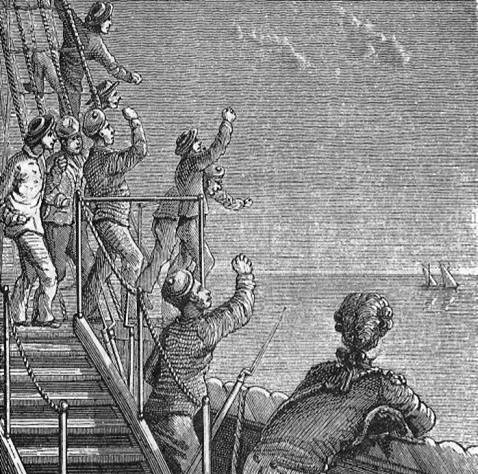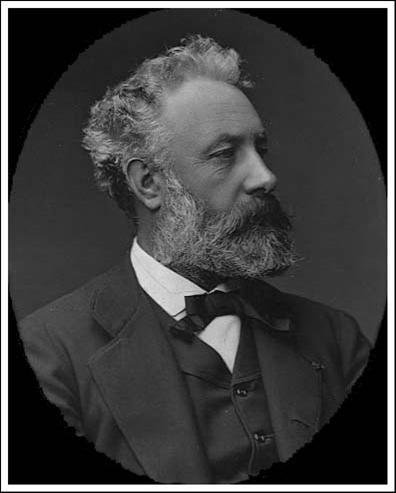
Part of "Extraordinary Voyages," Jules Verne's The Kip Brothers was never translated into English for a variety of reasons, including because of its anti-American and anti-British sentiment.
Mostly it was not translated because it veered away Verne's typical science fiction tales. First published in French in 1902, it arrived in English in 2007 (Wesleyan University Press).
Jules Verne had a passion for travel and exploration expressed in his global adventure stories. He was thought a leader on the future of science. In his early years he was forced to drop out of law school in Paris when his father cut him off. He survived as a stockbroker as he began to write his many books.
The book, a crime drama, celebrates the fraternal bonds of brotherhood, written shortly after the death of Verne's brother and best friend, a French sailor. The bond between the two heroes is so close it raised the question in this writer's mind whether gay relationships could have been written about openly in Victorian France?

The breathtakingly visual plot of this classic is set over the Pacific Ocean, like Verne's 20,000 Leagues Under the Sea. The book unfolds as its Dutch brothers adventure in Australian Tasmania and New Zealand, both former British colonies.
The story is told in a gripping before and after. Before, Karl and Pieter Kip become castaways, shipwrecked on a barren island in the South Seas. They are rescued by the brig James Cook, which we learn has serious trouble on board.

The Wesleyan University Press edition features original sketches.
Shortly thereafter, two particularly unpleasant mutineers kill the kindly captain. The Kip brothers help to foil this onboard mutiny while rescuing the ship in a storm.
However the brothers find themselves accused and convicted of the captain's murder when they finally reach shore. They are first framed in court, and then sentenced to death.
Their only advocate is the owner of the ship that rescued them. He manages to get their sentences changed to life imprisonment in an Australian penal colony, while he continues to look for proof that will bring the real culprits to justice.
After, the Kip brothers spend the novel's second part trying to escape a horrible penal colony. The good character of these Dutch brothers goes a long way to let everyone know that would never be capable of murder, but this must be proven to the courts.
In this story, perhaps most interestingly, Verne interweaves an exciting exploration of the South Pacific with a tale of judicial error reminiscent of the infamous Dreyfus Affair, which continued to rock Europe in the author's lifetime.
The Dreyfus Affair was the political scandal which divided France in the 1890's. It involved the conviction for treason of Captain Alfred Dreyfus, a young French officer of Jewish descent.
Sentenced to life imprisonment for having communicated French military secrets to the Germans, Dreyfus was sent to Devil's Island off French Guiana on the northern coast of South America.
Two years later, evidence came to light identifying a French Army major as the real culprit. However, high-ranking military officials suppressed this new evidence. Word of the military court's framing of Alfred Dreyfus and of an attendant cover-up began to spread, largely due to Emile Zola's expose in the French press.
The case had to be re-opened and Alfred Dreyfus was brought back from Guiana in 1899 to be tried again. The intense political and judicial fighting that ensued divided French society between those who supported Dreyfus (the Dreyfusards) and those who condemned him (the anti-Dreyfusards).
Seemingly, Verne was an anti-Dreyfusard in the beginning, but through writing The Kip Brothers, he transformed into a Dreyfusard.
The Kip Brothers is an extraordinary work for this reason alone. The classic was penned over 100 years ago by a brilliant leader in thought and global citizen.
It remains close to my heart because the English translation is by another world thinker, a man with a doctorate from Yale in French who also translated Verne's The Mighty Orinoco and The Begum's Millions, my father, Stanford L. Luce.

